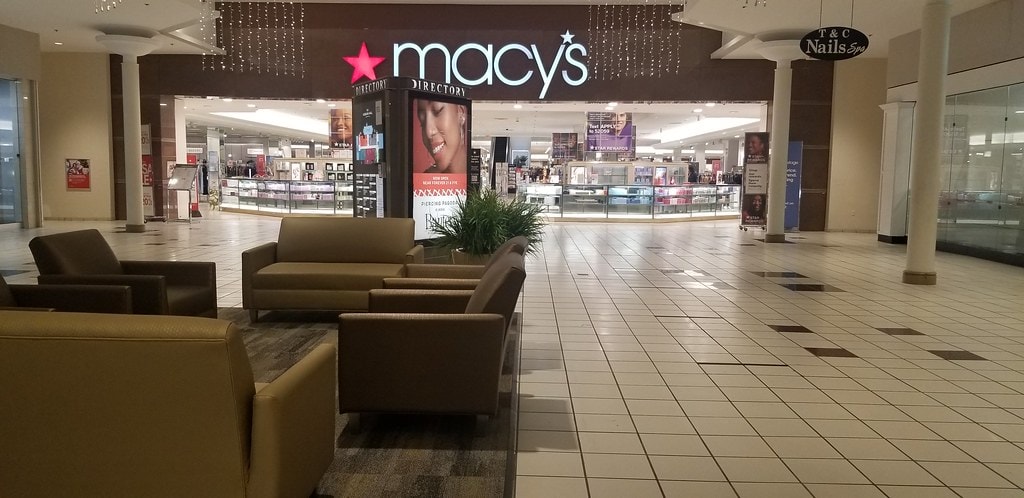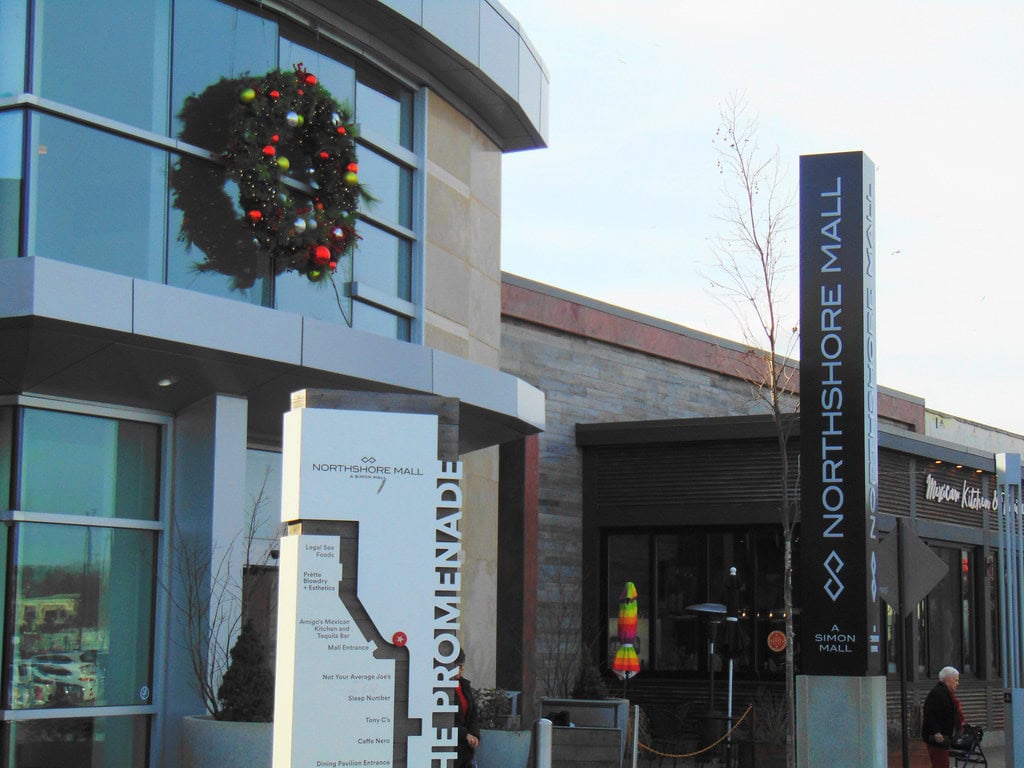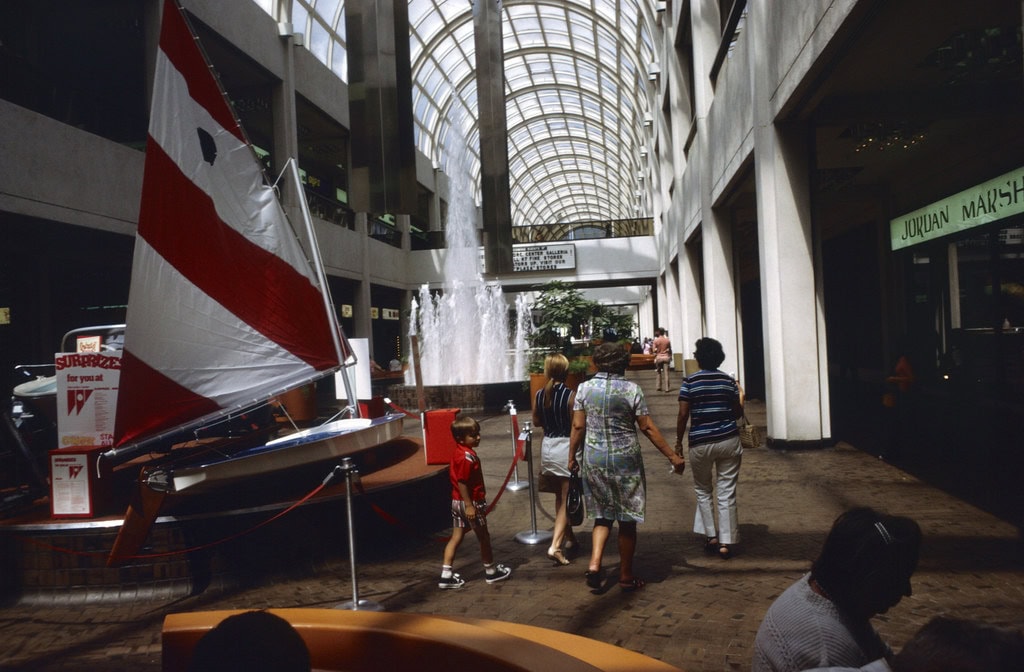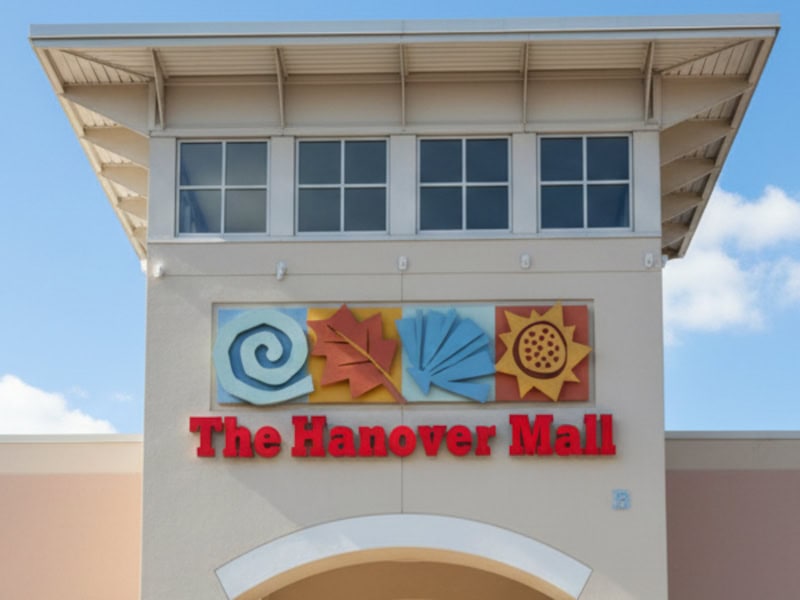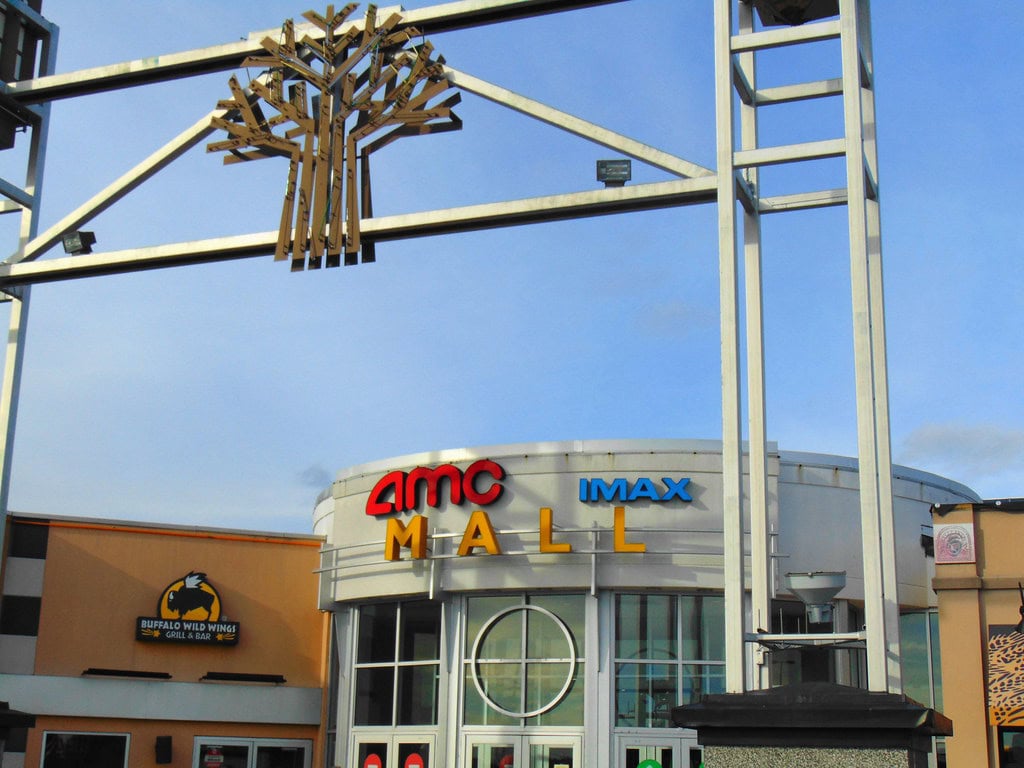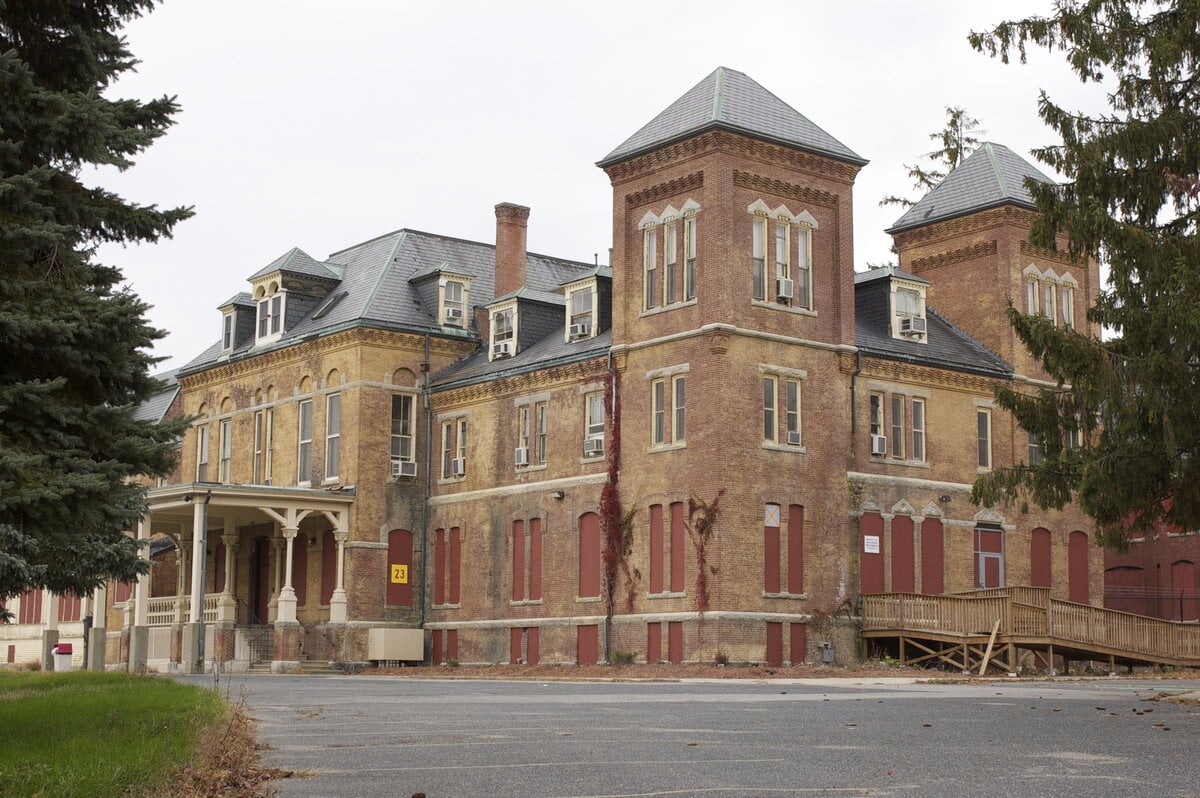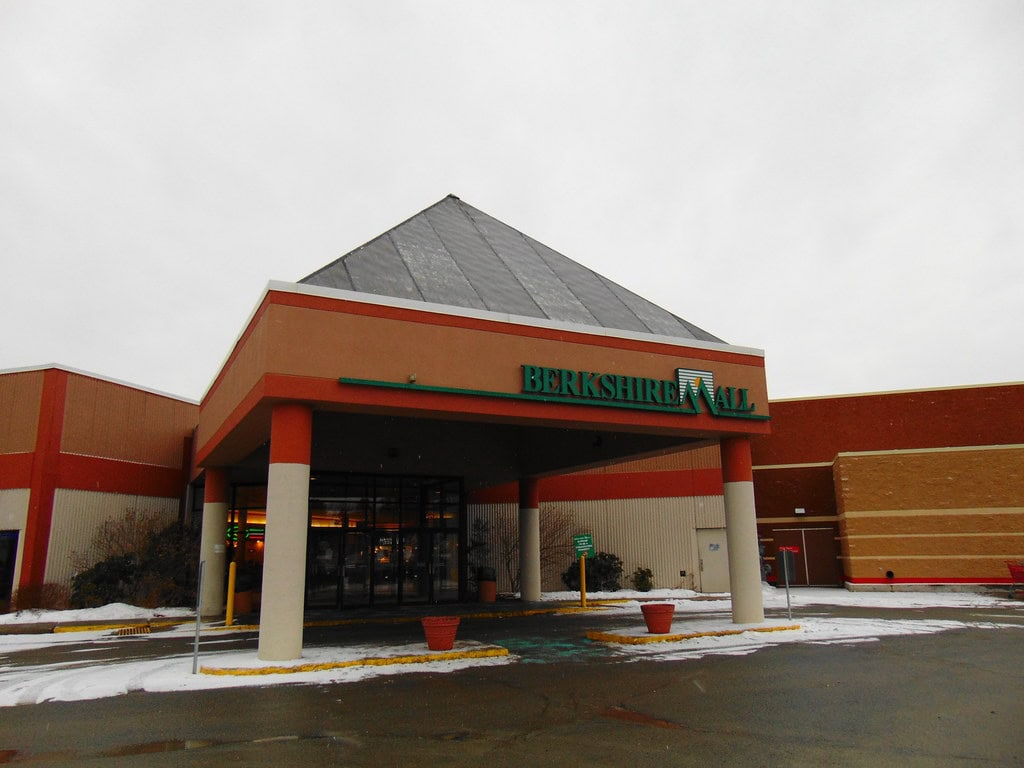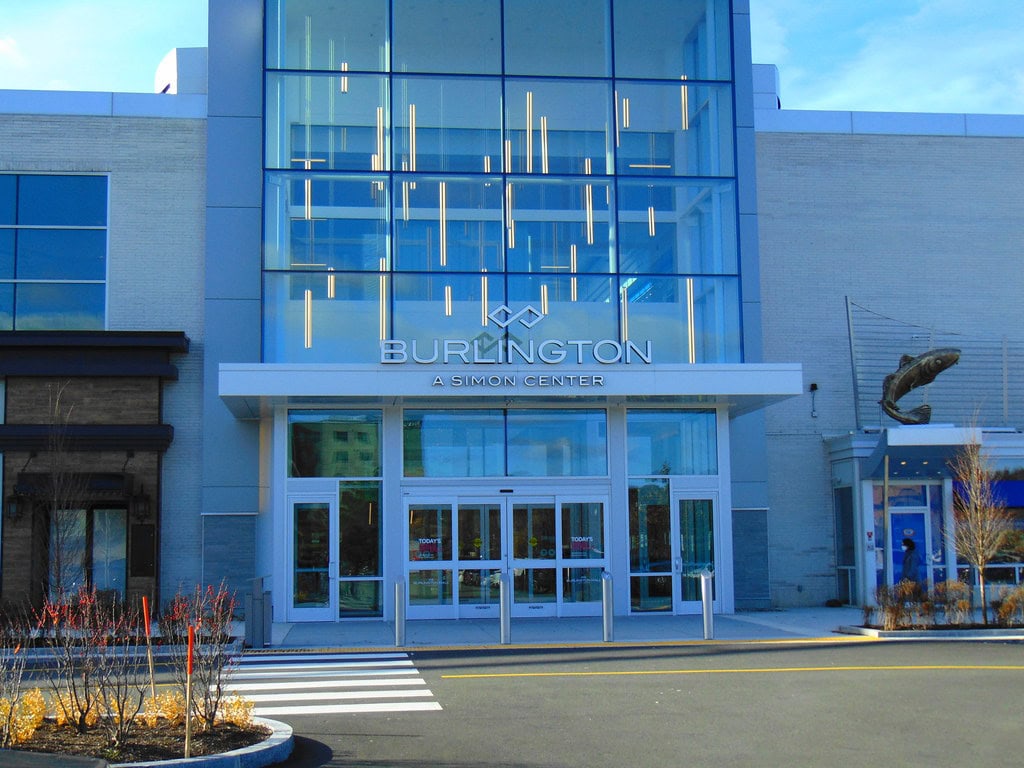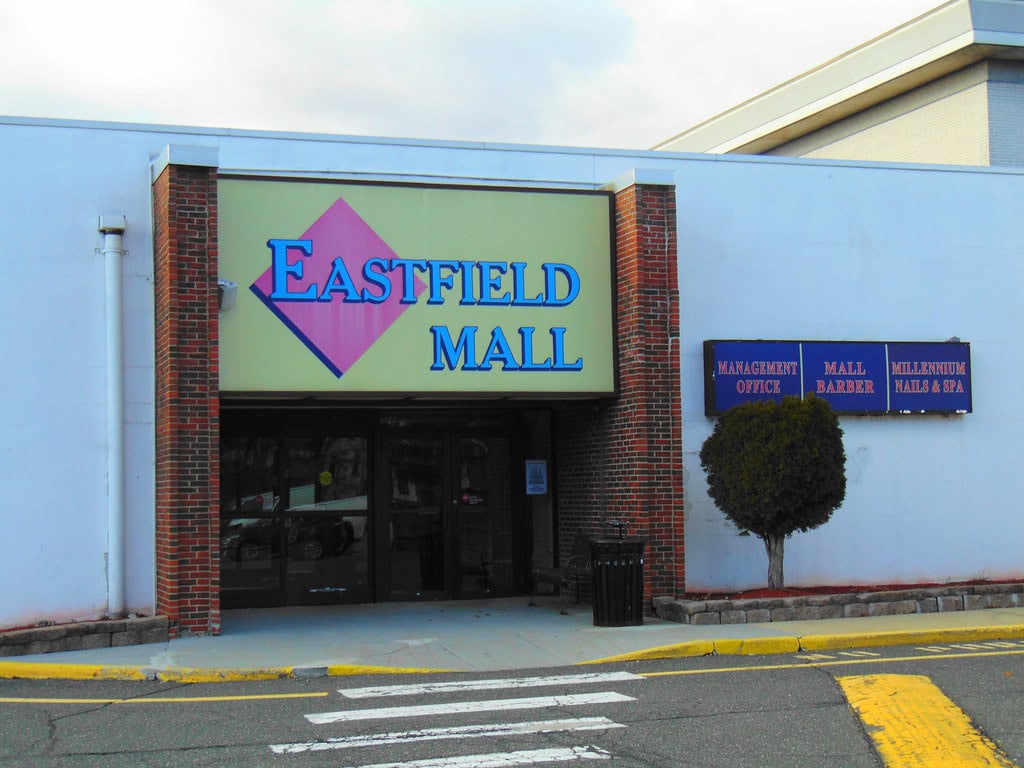Launch and Anchor Strategy in the Early Auburn Mall Market (1971-1980s)
The Auburn Mall opened in 1971 - right where the roads tangled near the Massachusetts Turnpike and I-290.
Its two anchors were Denholm's and Sears.
Both had reputations at the time: Denholm's leaned local and traditional, Sears leaned national and practical.
It didn't take long for things to shift.
Denholm's gave way to Forbes & Wallace, a Springfield-based chain, which then turned over to The Outlet - a Providence department store trying to expand.
That kind of handoff tells a story: the mall was searching for a fit, adjusting to who would shop and what they'd spend.
The Outlet shut down sometime in the 1980s. Retail changed a lot during those years, and that space eventually became home to Caldor.
Caldor moved into more than 100 malls across the Northeast during its expansion years.
Its arrival in Auburn felt like part of that momentum.
It offered lower prices, wide aisles, and everyday stock - less style, more stockroom.
This early phase of the Auburn Mall focused on regional identity and dependable chains.
Sears, in particular, lasted far longer, holding on until 2020. But the 1980s showed early signs of instability.
Rotating department stores were more than lease updates - they signaled how difficult it was to pin down consumer loyalty.
Remodels and Retail Transitions During Market Expansion (1990s-2006)
By the mid-1990s, malls across the region were scrambling to keep foot traffic steady - and Auburn Mall was no exception.
In 1997, the property underwent a full renovation.
It wasn't a light refresh. This overhaul added Filene's as a third anchor and shifted the layout inside.
Filene's, a Boston-based department store, had long been a draw in New England.
Auburn's version opened strong. By then, Caldor's future was shaky.
When Caldor closed its doors in 1999, Auburn Mall converted that anchor spot into a Filene's home store.
One brand now filled two spaces.
Federated Department Stores, which owned Macy's, acquired Filene's parent company, May Department Stores, in 2005.
Less than a year later, in 2006, Auburn Mall's two Filene's stores became Macy's.
The move wasn't local - it came from national consolidation.
That left the mall with two Macy's stores under the same roof, which felt like too much floor space for one brand.
Still, for a while, the change brought fresh signage, updated merchandising, and a familiar national name.
Around the same time, smaller national chains came in and out of lease.
Payless, Gap, RadioShack - these weren't just stores - they were part of the rhythm of the late 1990s retail cycle.
As rents shifted, tenants shuffled. Despite the turnover, there was enough movement inside the mall to keep it busy.
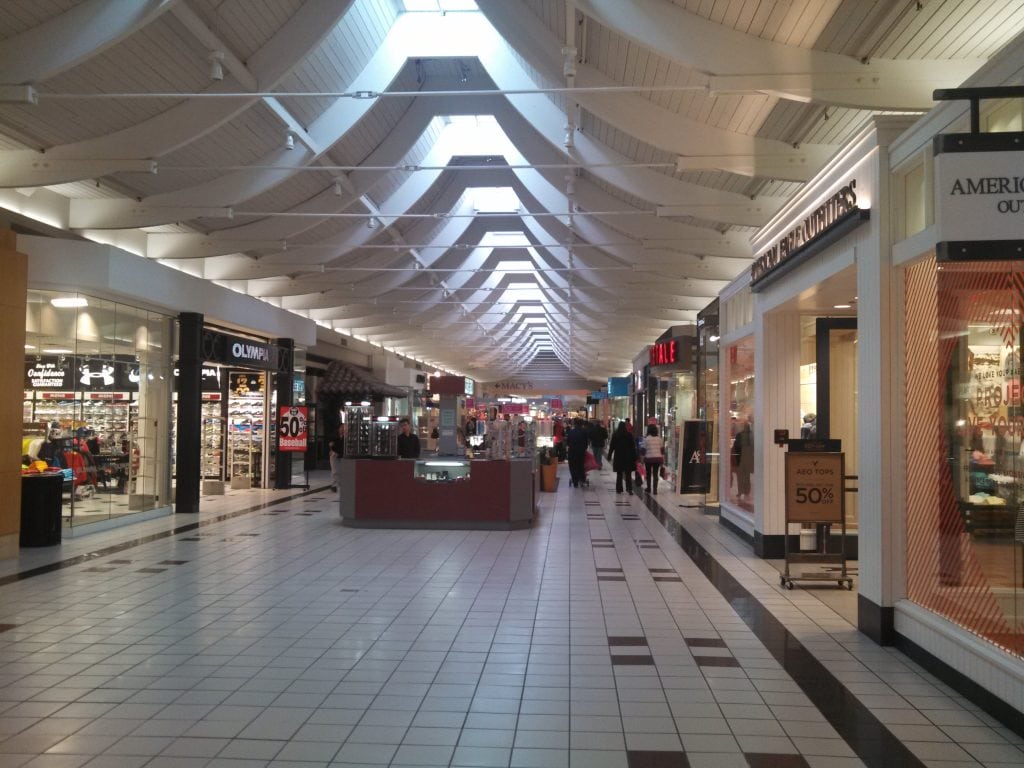
Abandoned Proposals and Commercial Retooling (2015-2019)
In October 2015, a plan surfaced: turn the Macy's Home Store into a 10-screen movie theater with a restaurant.
The Macy's location shut down on December 1 of that year, and the pitch for the cinema gained traction by April 2016, when it received formal approval.
The idea was bold but short-lived. The original proposal never broke ground.
By November 2016, the theater idea had been shelved, and a new one had landed - use the space for medical offices instead. It was a pivot, not a pause.
By mid-2017, the new direction was locked in. On June 16, the mall signed a 20-year lease with Reliant Medical Group.
The former Macy's Home Store was no longer retail - it was now set to become a healthcare site.
Construction moved at a steady pace. The new Reliant facility opened on February 18, 2019.
The location brought a different kind of traffic. People showed up for checkups, blood work, and imaging.
Foot traffic wasn't about shopping bags anymore - it was appointment slots and waiting rooms.
That change carried weight. The mall stopped being only a shopping center. Its floor plan started reflecting outside demand.
While national retail chains pulled out of malls, medical groups stepped in.
Anchor Losses and Retail Contraction (2019-2020)
On November 7, 2019, Sears confirmed it would close its Auburn Mall location as part of a nationwide shutdown of 96 stores.
That decision followed years of financial losses and shrinking in-store traffic. It was closed on February 16, 2020.
The exit left a noticeable gap. Sears had anchored the mall since 1971.
Its departure came four years after Macy's Home Store closed and a year after the space reopened as a medical facility.
Now, only one anchor - Macy's - remained.
That kind of vacancy in an enclosed mall affects more than square footage.
Without Sears, a chunk of the mall's daily draw disappeared, and smaller retailers along that wing saw fewer people walk past their storefronts.
According to town tax records, the mall's real estate tax was about $1.5 mln.
These numbers placed Auburn Mall high on the town's commercial tax roll.
Even with tenant losses, the property still mattered to local revenue.
But inside the building, store closures added up. Chains pulled back, and others didn't renew leases.
Foot Locker, The Children's Place, and Olympia Sports all left at different points around this time.
Storefronts stayed dark for months, and leasing signs turned permanent.
Sears' closure came just weeks before the retail sector braced for a broader economic slowdown.
Across the U.S., malls saw anchor tenants vanish, and Auburn followed that trend.
Even as Reliant Medical Group brought in patients, it wasn't the same kind of commercial traffic.
Power Cuts, Protests, and New Tenant (2024-2025)
It started with a post titled "New Store Alert," which the mall wrote in all caps on Facebook.
Five Below was moving in on January 18, 2024. The tone was upbeat, the kind that makes you scroll back just to double-check the date.
After months of quiet leasing news, it felt like motion.
But by March 2025, the mood turned. Forever 21 filed for bankruptcy and announced it would shut down all 11 stores in Massachusetts.
Auburn's location was on the list. It wasn't the first chain to leave - but it was the latest.
That same month, the mall made headlines for a different reason.
About 70 people gathered outside near the Tesla chargers. It wasn't about parking or prices - it was political.
Protesters held signs, paced the sidewalk, and directed chants toward Elon Musk.
Some waved hand-written boards. Others circled the rows of cars, calling for change in Washington.
It wasn't clear if the crowd planned to return.
A few months earlier, there had been another disruption. On December 10, 2024, a power issue forced the mall to close early.
Police used their Facebook page to get the word out, warning people to call ahead before showing up.
By the next day, the lights were back on, but the unexpected closure affected evening sales.
The mall wasn't quiet. But the noise in 2024 and 2025 didn't always come from shoppers.
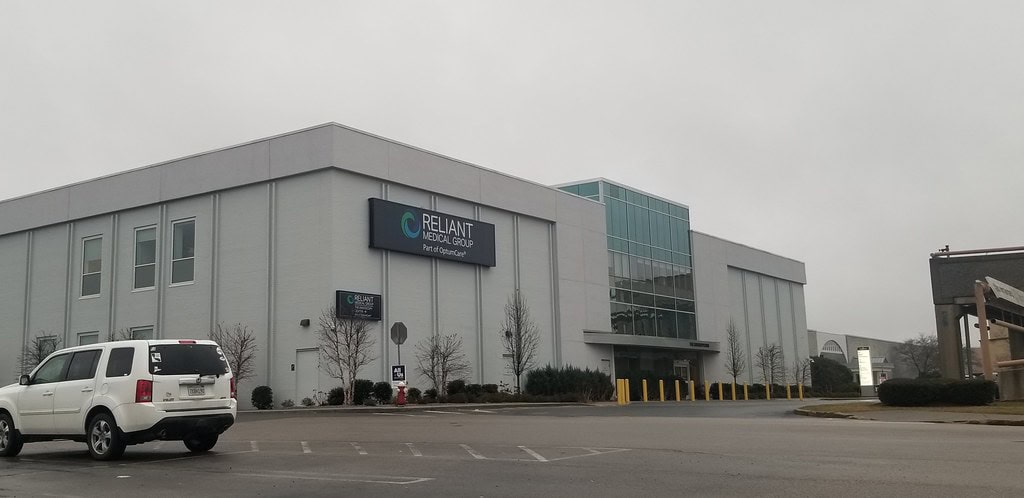
Tenants That Keep the Mall Moving (2025)
Auburn Mall doesn't buzz the way it used to, but walking the main corridor now doesn't feel abandoned either.
There's movement. Music drifts from store entrances, and lights are on. Macy's still anchors the space, holding the largest footprint.
The inventory shifts with the seasons - spring jackets near the doors and clearance signs deeper in.
It's consistent, and that consistency matters.
Closer to the center, Five Below attracts a different kind of traffic.
It opened in 2024 and hasn't been quiet since. The shelves are full of fast-turnover products: colorful bins, budget tech, candy, and stationery.
It's one of the few places drawing steady weekday footfall.
One storefront over, Victoria's Secret is still doing business. Loungewear, fragrance, and displays reset with every marketing drop. It's tidy and current.
Couture Corner sits closer to the mall's interior edge.
It's local, boutique-style, and features mannequins dressed in formalwear, seasonal dresses, and some prom-style inventory. The space is stocked and maintained.
JD Sports operates a few doors down, serving brands like Nike and Adidas.
Its sneaker wall gets attention. Even on slower days, there's someone comparing styles and checking sizes. The store taps into a younger base.
Aéropostale and Express Factory Outlet are nearby, each holding a slice of the fashion category.
The inventory is kept neat. Music loops quietly overhead. They're not packed, but they're active.
On the other hand, Bath & Body Works runs its seasonal cycle like clockwork.
Spring scents are available in March, and candles are available in December.
The shelves are always stocked, and customers don't need help finding what they came for.
The Children's Place offers its niche - organized racks, clearance bins by the door, and consistent product turnover.
Famous Footwear is next in line, lined with rows of branded boxes and weekend promotions.
Then there's Kay Jewelers. It's a quieter presence - bright counters, steady lighting, no crowding - but it's still there, in the same spot, on the same display.
The storefronts aren't full, but enough of them are active. Enough people walk the floor to make you look twice.
For now, Auburn Mall keeps working.
